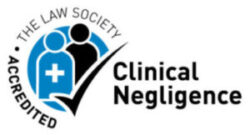Following on from our article on how the NHS is falling behind other countries, a study conducted by BMJ Open suggests that UK GPs are too slow to refer patients who may have cancer compared to those in other countries, which could be a major contributing factor to the low cancer survival rates in the UK in comparison to those of other countries.
The hesitation of GPs to refer patients who may have cancer to a specialist or for further tests could also result in unnecessary instances of late cancer diagnosis.
Late Cancer Diagnosis Affects Cancer Survival Rates
BMJ Open analysed survey responses from 2,795 doctors from the UK, Norway, Sweden, Australia and Canada on how they would manage different scenarios involving patients coming to them with possible cases of lung, colorectal or ovarian cancer. The results of the telephone interviews were then mapped against cancer survival rates for each of those countries in order to get a better understanding of how GP reactions influence the likelihood of surviving cancer.
The results of the research show a correlation between cancer survival rates and those countries where GPs are more likely to refer patients to a specialist immediately and those who did not. According to the results of the telephone survey, UK-based GPs appear more likely to make a late diagnosis of cancer than those in other countries, which may be a contributing factor to the UK’s relatively poor cancer survival rates. The reluctance of UK doctors to consider cancer as a possible cause for a patient’s symptoms when first approached, may in some cases entitle the patient to make a clinical negligence compensation claim.
Cristopher Livingston, clinical negligence solicitor at Blackwater Law in Suffolk, said: “Research such as this is crucial to better understanding the problem of late cancer diagnosis in the UK and combatting the country’s low survival rates compared to other western countries.”
UK GPs Reluctant to Consider Ovarian Cancer
One of the hypothetical scenarios presented to the doctors involved a 53-year-old woman who had her last period six months ago and had suffered abdominal pain for the past three weeks. These are potential signs of ovarian cancer, but they could also be caused by many other diseases and problems such as ovarian cysts and polycystic ovaries. In the UK, 38% of GPs indicated they would refer the patient for further tests, while 61% of doctors in other countries said they would refer the patient immediately.
According to Cancer Research UK, the percentage of ovarian cancer patients surviving one year or more in the UK following diagnosis was 65%, compared to 73% for the rest of the world.
Lack of Access to CT and MRI Scans for UK Doctors
GPs were also asked a series of questions including what access they had to specific tests, waiting times for tests and results and whether they could speak to cancer specialists for advice. Although more than 70% of GPs in England, Wales and Northern Ireland said they had direct access to blood tests, X-rays and ultrasound for possible cancer diagnosis – similar to those in the other countries – only one in five GPs in the UK reported having direct access to CT and MRI scans. Doctors in all other countries reported having at least twice the level of direct access, compared to those in the UK.
Waiting Times for the Results of Scans
According to the study, Northern Ireland has the longest waiting times for tests and results of ultrasound and CT scans, with doctors having to wait around seven to eight weeks for each. GPs in England had to wait around five weeks for the same tests, while results for these tests in Wales took seven weeks to come through. The best performing region was New South Wales with a total waiting time for ultrasound and CT scans of around one and a half weeks.
Sara Hiom, the director of early diagnosis at Cancer Research UK, said: “This work adds important detail to the complex problem of why the UK’s cancer survival lags behind other comparable countries.
“GPs have a difficult job to do. They have to ensure those who need specialist tests get them, without overloading a health system that’s already strained. But their role as gatekeepers to further investigation and specialist care does need to be reviewed in the current context.
“If the UK system means that patients are not being referred for tests, or GPs aren’t able to get a specialist opinion as necessary, then this can contribute to cancers being diagnosed and treated at a later stage and we urgently need to address this.”
Dr Richard Roope, a representative of the Royal College of GPs, claimed the majority of doctors in the UK did not have direct access to CT and MRI scans, which meant they were more likely to investigate other possible causes first.
Another issue he identified was that doctors tested for one condition at a time, while other countries tested for all possibilities at once.





